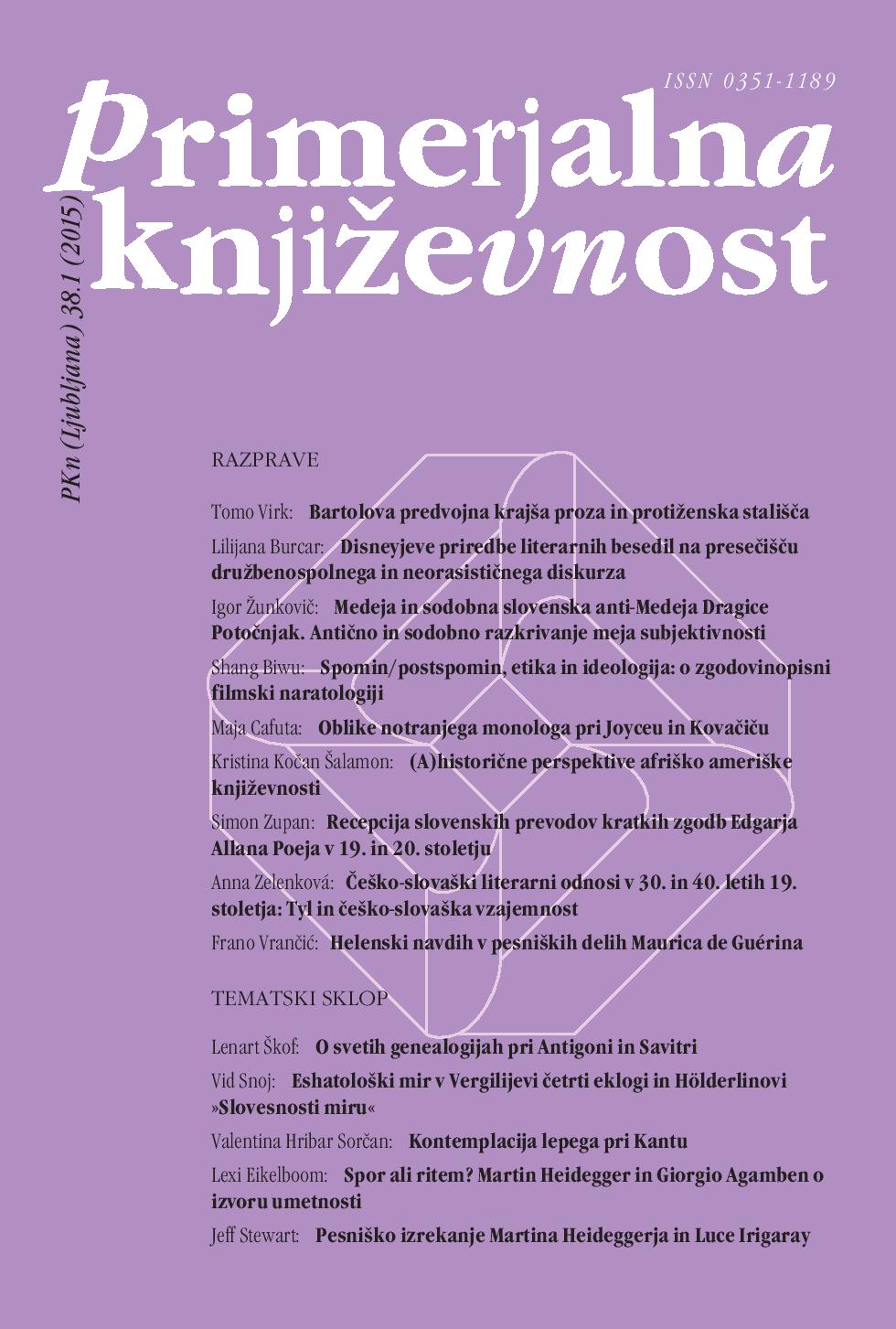On Sacred Genealogies: Antigone and Savitri
Keywords:
literature and religion, Greek literature, Sophocles, Antigone, Indian epics, Mahabharata, Savitri, cosmical order, unwritten laws, ethics, justiceAbstract
Today civilization offers a plenitude of earthly goods, including shared “ethical” and “political” laws. In this fabricated world, people willingly (or unwillingly) tolerate evil and violence in one of its varied forms, and are thus unable to posit an unconditional ethical demand against it. Being subjected to different forms of power, people cannot find peaceful repose, a place to host and protect peace for other living individuals. This paper is inspired by Irigaray’s reading of the play Antigone. At the beginning, it offers a new cosmological and ethical interpretation of Antigone. Antigone’s famous words “My nature is to join in love, not hate” guides the analysis. In this, I follow Irigaray, who is thinking in line with cosmic laws. It is shown that Antigone’s act is an ultimate litany for the dead, but her faith is a radical faith for the living, an ethics for a life. In the second part, an innovative comparison is carried out between Antigone and Savitri from the Mahabharata. Princess Savitri from the Mahabharata represents all three genealogical orders as represented by Irigaray’s reading of Antigone: respect for sexual, cosmic, and generational genealogies. The highest ethical demands of both Antigone and Savitri are thus represented as a sign of absolute hospitality, a place people can be secure first in themselves for others – both the deceased and living – in ethical and in political contexts. I show that universally no duty can be higher than the deepest cosmic and ethical faith, and bodily sensitivity to others in pain. Antigone’s and Savitri’s ethical acts are thus interpreted as an ultimate sign for a peaceful community-to-come. The highest ethical demand of Antigone and Savitri is thus a sign of an absolute hospitality, a place people can secure first in themselves for others, in both ethical and political contexts.References
Brague, Rémi. Božji zakon – Filozofska zgodovina neke zaveze. Ljubljana: Študentska založba, 2009.
Burkert, Walter. Griechische Religion der archaischen und klassischen Epoche. Stuttgart: Kohlhammer, 2011.
Caputo, John D. The Insistence of God: A Theology of Perhaps. Bloomington in Indianapolis: Indiana University Press, 2013.
Derrida, Jacques. Acts of Religion. Ur. G. Anidjar. New York in London: Routledge, 2002.
– – –. Of Hospitality. Stanford: Stanford University Press, 2000.
Deshpande, R. Y. The Ancient Tale of Savitri. Pondicherry: Sri Aurobindo International Centre of Education, 1995.
Douglas, Mary. Leviticus as Literature. Oxford in New York: Oxford University Press, 2000.
Hegel, Georg Wilhelm Friedrich. Lectures on the Philosophy of Religion. Part II, 3.αβ. Ur. Peter C. Hodgson. Prev. R. F. Brown, P. C. Hodgson in J. M. Stewart. Berkeley: University of California Press, 1984.
Irigaray, Luce. »Ethical Gestures Toward the Other.« Poligrafi 15.57 (2008): 3–23.
– – –. In the Beginning, She Was. London: Bloomsbury, 2013.
– – –. To Be Two. New York: Routledge, 2001.
– – –. Una nuova cultura dell’energia. Al di là di Oriente e Occidente. Torino: Bollati Boringheri, 2013.
Levinas, Emmanuel. Outside the Subject. London: Continuum, 1993.
Nancy, Jean-Luc. Corpus. Prev. Mirt Komel in Varja Balžalorsky. Ljubljana: Študentska založba, 2011.
– – –. Singularna pluralna bit. Lepota. Prev. Nastja Skrušný in Valentina Hribar Sorčan. Ljubljana: KUD Apokalipsa, 2012. (Filozofska zbirka Aut 57).
Nietzsche, Friedrich. Tako je govoril Zaratustra. Prev. Janko Moder. Ljubljana: Slovenska matica, 1999.
Otto, Walter F. Bogovi Grčije: podoba božanskega v zrcalu grškega duha. Ljubljana: Nova revija, 1998.
Parpola, Asko. »Savitri and Ressurection.« Changing Patterns of Family and Kinship in South Asia. Ur. Asko Parpola in Sirpa Tenhunen. Helsinki: Finnish Oriental Society, 1998. 267–312. (Studia Orientalia, 84).
– – –. »The Religious Background of the Savitri Legend.« Harānandalaharī – Volume in Honour of Professor Minoru Hara on His Seventieth Birthday. Ur. R. Tsuchida in A. Weber. Reinbek: Dr. Inge Wezler Verlag für orientalische Fachpublikationen, 2000. 193–216.
Sofokles. Antigona. Kralj Ojdipus. Prev. Kajetan Gantar. Ljubljana: Mladinska knjiga, 1998.
Statkiewicz, Max in Valerie Reed. »Antigone’s (Re)turn: The Ēthos of the Coming Community.« Analecta Husserliana 85 (2005): 787–811.
Škof, Lenart. Breath of Hospitality: Intersubjectivity, Ethics and Peace. Dordrecht: Springer, 2015.
Thomas, Rosalind. »Writing, Law, and Written Law.« The Cambridge Companion to Ancient Greek Law. Ur. Michael Gagarin in David Cohen. Cambridge: Cambridge University Press, 2005. 41–60.
Zgodba o Savitri: pripoved vidca Markandeje iz Mahabharate. Prev. Vlasta Pacheiner Klander. Branik: Založništvo Abram, 2002.


